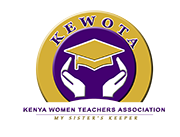On the 25th of November, just three days ago, UN Women inaugurated its annual campaign, the 16 Days of Activism against Gender-Based Violence. This initiative is a pivotal component of a broader strategy aimed at eradicating violence against women.
Despite concerted efforts by organizations globally to prevent and eliminate violence against women, it is undeniable that Gender-Based Violence (GBV) remains a significant impediment to gender equality and empowerment in Kenya. While women empowerment groups have made substantial strides in combating GBV, it continues to pose a formidable barrier to women in Kenya seeking equality, opportunities, and personal development.
The Kenya Women Teachers Association (KEWOTA) is particularly committed to eliminating GBV, with a special focus on the education sector. According to research conducted by KEWOTA, girls in Kenya are more susceptible to dropping out of school at an early age compared to boys, a trend attributed to high rates of GBV affecting girls and impeding their educational pursuits. Conversely, boys are more likely to complete their education, enter the workforce, contributing to male-dominated sectors, and limiting opportunities for women.
In response to these challenges, KEWOTA’s leadership is fervently dedicated to eliminating GBV and ending teenage pregnancies. Noteworthy achievements have been made by KEWOTA in the fight against GBV, and the organization continues to explore additional strategies to address this pervasive obstacle that hinders the progress of girls and women.
KEWOTA collaborates with women teachers across the country, providing training, resource mobilization, mentorship, prevention and rescue efforts, and other initiatives to combat GBV. The organization has empowered its members, women teachers in Kenya, to play an instrumental and resourceful role in the fight against GBV within their communities.
Thanks to KEWOTA’s efforts, women teachers are equipped to prevent GBV through mentorship and training, identify cases and respond effectively, and establish long-term mentoring relationships with young girls built on mutual respect, genuine friendship, fun, and a non-judgmental approach. Women teachers also collaborate with authorities and other experts to address GBV cases, ensuring that affected girls receive psychological and legal support and are enabled to continue their education.
During a strategy launch forum, Benter Opande, the CEO of KEWOTA, emphasized that teenage pregnancy is a battle that must be fought and won, as it lies at the core of the gender equity and equality discourse that KEWOTA advocates for.


Gbv and teenage pregnancy must be eliminated
Kewota is transforming the lifestyle of women teachers
Kewota is a nice home to run to!
Kewota is a nice home to run to!
Kewota my sisters am a proud member keep the good work we welcome everyone.